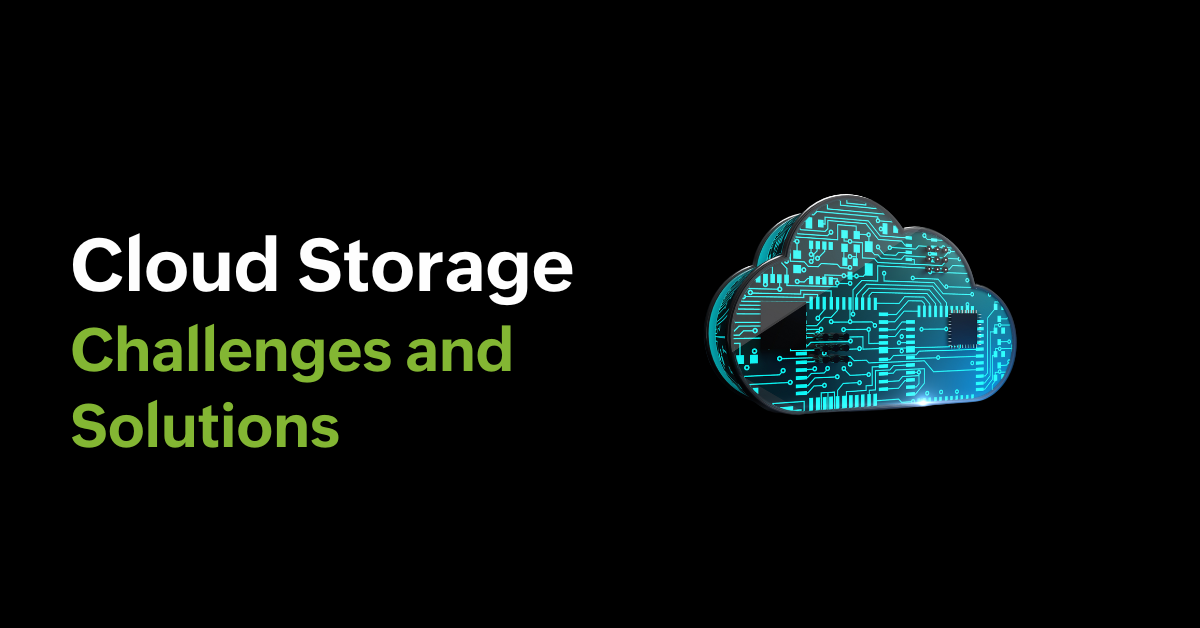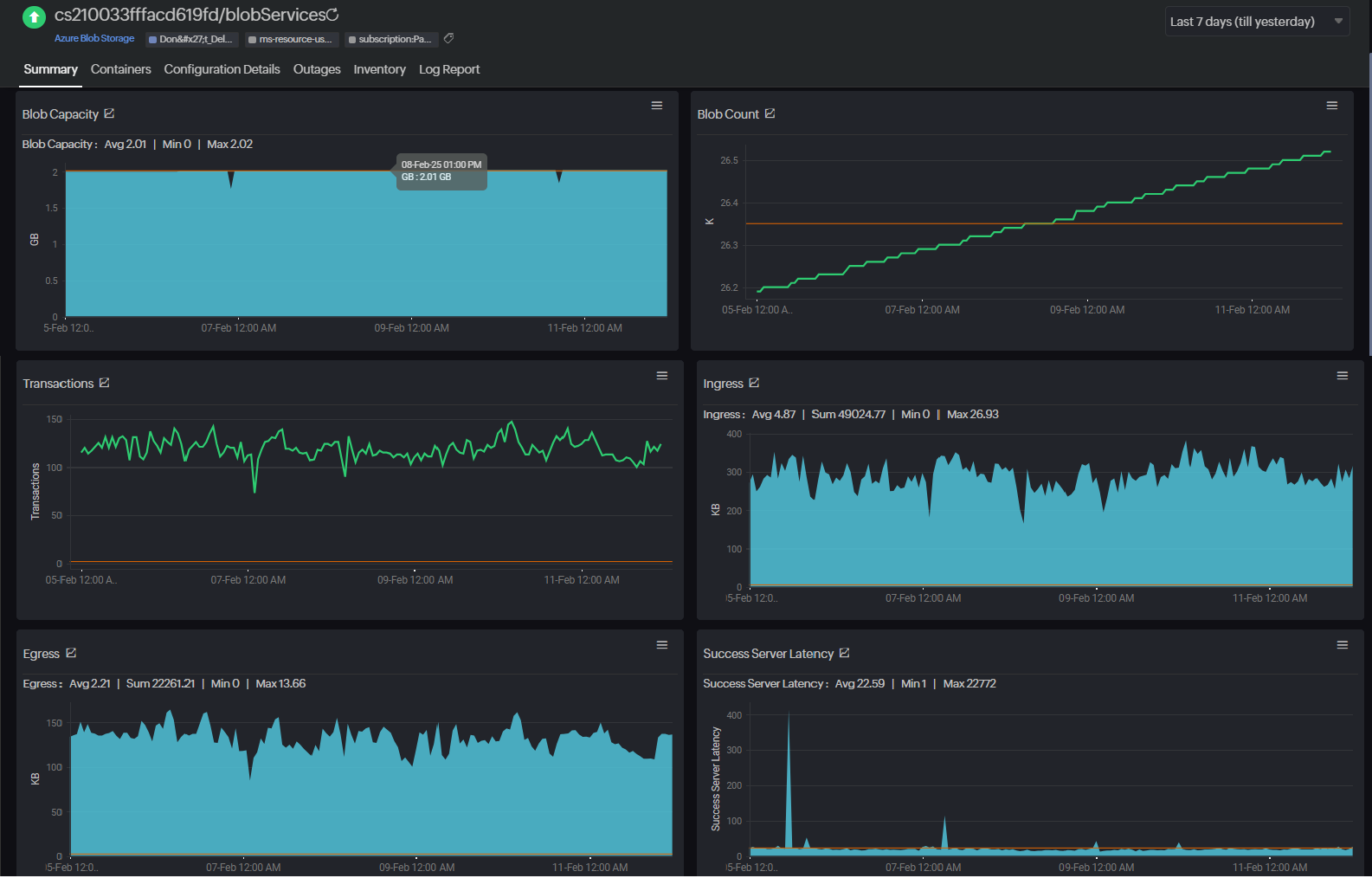Cloud storage: Walkthrough, challenges and solutions

Cloud engineers, SREs, SysAdmins, and CTOs are always on the lookout for more avenues to keep their organization's data secure, accessible, and managed.
In this blog post, let us explain cloud storage in detail, the associated challenges, and how to overcome them.
What is cloud storage?
Cloud storage is a data storage model where data is stored in logical pools across multiple servers and locations i.e., the cloud. The physical environment is usually owned and hosted by a cloud service provider (CSP).
Cloud storage has become an essential component in today's IT infrastructure. It offers scalability, flexibility, and cost efficiency in enterprise environments.
Types of cloud storage
Let us list the common cloud storage types:
Object storage: This is ideal for unstructured data like images, videos, and documents. This type is highly scalable and cost-effective for large amounts of data.
Block storage: This type is preferred for structured data like databases and enterprise applications.
File storage: This type offers a hierarchical file system and is more suited for sharing files across users and applications.
Hybrid cloud storage: This type combines on-premises storage devices with cloud storage and provides flexibility and data redundancy.
Which Cloud storage provider to choose
Here are some of the major cloud storage service providers and their USPs:
Amazon Web Services (AWS): Offers Amazon S3 for object storage, EBS for block storage, and EFS for file storage. Known for its comprehensive feature portfolio and global presence.
Microsoft Azure: Provides Blob Storage, Azure Files, Queue Storage, and Azure Disk Storage. Owing to its seamless integration with Microsoft's ecosystem, it offers strong hybrid cloud capabilities as well.
Google Cloud Platform (GCP): Gives Cloud storage, Persistent Disk, and Filestore. Well known around the tech community for its analytics and machine learning integrations.
IBM Cloud: Offers Cloud Object Storage and Block Storage. Preferred choice of those focusing more on enterprise-grade security and compliance.
Cloud storage problems
Here are the common challenges faced by cloud storage users:
Data security and compliance
Cost management
Performance and latency issues
Multi-cloud management
Data security and compliance
Data leak is a serious threat to any organization and can lead to monetary and reputation damages. Stringent data protection regulations like GDPR and HIPAA ensures the security of your data. With on-premises data storage, audits, access control, and encryption is easy. However, when you are juggling with multiple cloud storage providers, it gets complex.
Cost management
While cloud storage offers flexibility, it is easy to overspend and get a staggering bill at the end of the month. Understand your usage patterns and implement cost-effective storage tiers.
Performance and latency issues
At organizational levels, data grows easily. The more your data grows, the more the chances of performance bottlenecks. Slow data retrieval and high latency can impact user experience and the performance of all dependent applications.
Multi-cloud management
Most organizations, as a part of their failover and business continuity plans (BCP), host their data and applications in more than one cloud service provider and in multiple locations. This complex setup has its advantages but makes it an uphill battle to manage and monitor.
How Site24x7 can help

Security and compliance: Every cloud resource of yours is brought under an AI-enabled observability suite. Potential security breaches and suspicious activities are promptly alerted with the added advantage of Site24x7 being compliant with every major compliance standard.
Performance optimization: With our cloud monitoring platform, you get real-time alerts even when a single cloud resource doesn't perform the way you want it to. With a 24x7 monitoring platform watching over your business critical metrics like IOPS, latency, and throughput, you can identify present and probable bottlenecks.
Cost: You can either use our cloud monitoring tool's thorough reports and dashboards to analyze your organization's usage trends and devise a cost management plan. Or you can use our Guidance Reports and CloudSpend, that analyze every cloud resource's usage and configuration and give you a report to improve your cost management strategy along with your security posture and configurations.
Supports many clouds and any cloud: Whether your applications and data are hosted on Azure, AWS, GCP, or Oracle Cloud (OCI), one Site24x7 account is all you need to monitor all your cloud resources from one browser tab. Our cloud monitoring platform is elastic and scalable, which means your monitoring setup scales up and down with your cloud resources automatically.
Try our full-stack observability suite today.
Topic Participants
Geoffrin Edwin